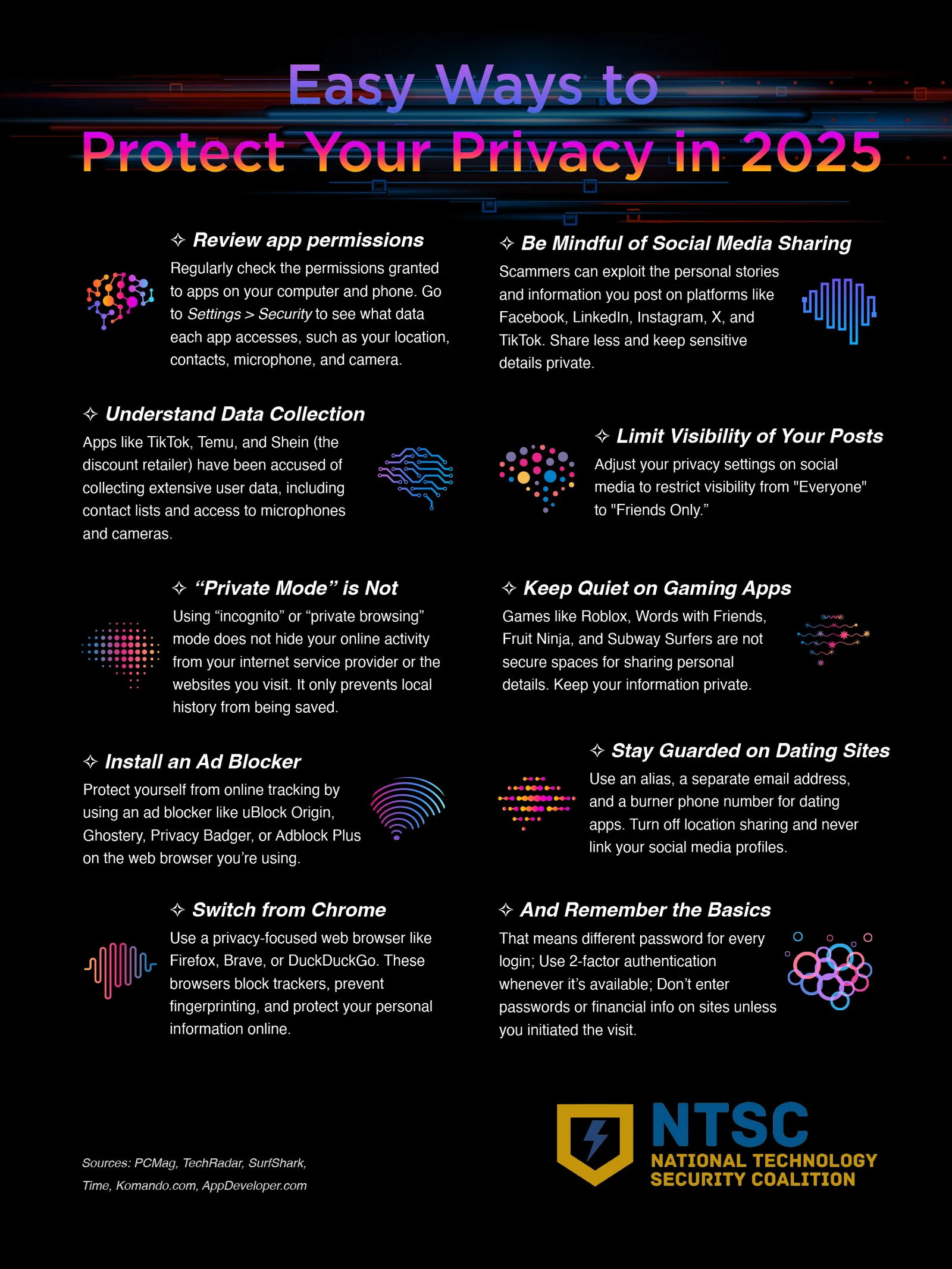


Cybersecurity News You Can Use

IMPORTANT ALERT FOR GMAIL USERS: Forbes says scammers have started using AI-generated text and emails to persuade users to update their Gmail passwords. The scammers send convincing emails and follow up with AI-generated phone calls from numbers that appear to be from Google, reminding the victim to comply. The only clue this was a scam: the “To” field of emails wasn’t from google.com.
If you get an urgent communication from “Google,” don’t click on links, download files, enter personal info in emails, messages, web pages, or pop-ups, and don’t respond to the voicemail. Instead, visit https://myaccount.google.com/notifications.

CHECK THE WI-FI EQUIPMENT YOU USE AT HOME: If it’s from TP-Link, consider replacing it. TP-Link is the most popular router brand in the US, but the Wall Street Journal says the government is considering banning it as a security risk. Microsoft says hackers have been able to find flaws in the router’s design and hack into it. Cybernews says options include equipment from Netgear, Cisco, Linksys, Ubiquiti Networks, Arista Networks, and Juniper Networks.
These organizations say they have been hacked recently. If you do business with any of these companies, change the password on your account and use two-factor authentication wherever possible.


Phish of the Week
Why do you receive so many generic text messages you don’t recognize?
Should you respond?

Here’s the deal.
Scammers spray these text messages by the thousands to phone numbers
that have been collected in cyber breaches.
When somebody responds, they know the number is in use
and follow up with more customized scams.
So don’t respond. Just delete it.
One more thing...
Misunderstanding cybersecurity: example #1.

The_Leighton_Show via Reels
Answers to Your
Cybersecurity Questions
Doesn’t using my fingerprint and face ID to access my accounts create a digital code the same as a name and password? — Joey M.
No, your fingerprint or face data is not shared with merchants or banks; it is securely stored on your phone. Unlike passwords, which can be reused across multiple accounts and exploited if stolen, biometrics require physical access to your fingerprint or face, making them more secure against remote hacking.
My social security number has been compromised. What should I do? — Forrest H.
First, visit [freecreditreport.com] to obtain a copy of your credit reports. After reviewing them, consider placing a credit freeze to protect against unauthorized activity. Search online for “how to freeze my credit” to learn more about the process. Be sure to keep all passwords and paperwork related to the freeze. To fully secure your credit, you must contact all three credit bureaus — Equifax, TransUnion, and Experian — to request the freeze. Additionally, regularly monitor your financial and government statements for unauthorized accounts or charges.
Two things happened to me recently I want to ask about. The I.R.S. called and said I still owe $500 in back taxes. They said I could have my employer draft it from my paycheck, or to save me from public embarrassment; they could use my debit card for the payment.
Not long afterward, my bank called and said they were performing a random security check on accounts and needed my checking account routing and account numbers to perform the test.
I hung up on both, but I’m still worried. — Bruce L.
Bruce, you handled the situation correctly both times. Government agencies and banks will not call unexpectedly to ask for personal information. Hanging up was the right decision. If you’re still concerned, visit the agency’s official website or contact your bank directly using a phone number from past communications or a trusted source, such as their official website. Avoid using phone numbers provided in voicemails or text messages, as these could be part of a scam.
Original content © 2025 Aware Force LLC